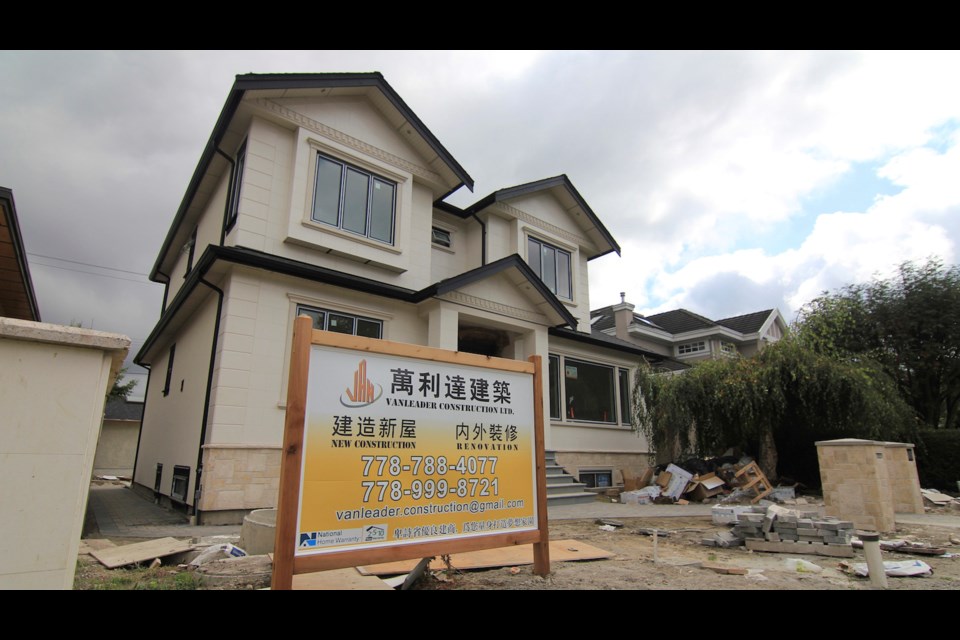When Rex Su was choosing a city for him and his family’s new home in Canada in 2021, he was certain that it was not to be in Vancouver – despite the pleasant climate, large immigrant community and exceptional food scene.
“I moved to Canada for a new start. I start humble but I have a big goal – I want to have a meaningful career, a detached house for my family and my kids can go to a great school,” said Su.
“I might be able to achieve that in Vancouver in 10 years but that’s not guaranteed with the fast-growing housing prices, while in Ontario or Alberta, it might only take two years. For me, the extra work and time costs are unnecessary.”
Su, a former marketing director in Beijing and a registered massage therapy student in London, Ont., is looking to settle down with his family on the East Coast after he graduates this year.
Like Su, many immigrants who come to Canada to build up a life from scratch are avoiding Vancouver and are instead looking for opportunities eastward, as the middle-class life they dreamed of in Canada feels out of reach here, according to a Richmond-based immigration agency.
“Many applicants have realized that Vancouver is not a welcoming place for middle-class immigrants who don’t come with pre-existing wealth,” said Yue Yu, marketing manager of Maple Gateway Consulting Inc.
The company has seen more of their clients – who are mostly from China – “avoid” Vancouver if they don’t have high net wealth or high-level skills that can quickly get them a well paid job in the market.
Alberta, meanwhile, has become an increasingly popular alternative for these middle-class immigrants, according to Yu.
According to a recent TD study, Alberta will post real GDP growth of 2.7 per cent in 2023, compared to just 1.2per cent in B.C.
The average price of home in Alberta in May 2023 was $447,000, compared to $1,019,000 in B.C., based on data from the Canadian Real Estate Association.
‘Deflecting immigration’
B.C. is still a popular destination for immigrants, with 61,215 new international immigrants in 2022 or 14 per cent of the total number of immigrants to Canada – a slight decline from a record year in 2021.
However, if Vancouver mainly attracts immigrants with high net wealth or those who work in high-paying industries – no matter which immigration stream they come through – the impact will be felt in the local economy and labour market, according to Andy Yan, director of the city program at Simon Fraser University.
“Unfortunately, it’s not all that surprising when you look at the amount of housing costs, whether it’s ownership or rental, and relatively modest wages,” said Yan.
He compares the trend with “deflecting immigration” in the 1990s when a large number of immigrants were driven away from Los Angeles due to housing affordability challenges and toward less-established immigration destinations.
According to WorkBC, the most in-demand trades – such as cooks, auto repair technicians and construction workers – have a salary range of between $33,370 and $52,140. Renting a one-bedroom apartment in Vancouver costs an average of $33,240 per year.
Alberta competes for skilled workers
Last year, Ontario and B.C. – Canada’s two most-popular provinces for immigrants – saw a slight decline in new immigration, while provinces including Quebec, Manitoba, Saskatchewan and Alberta all saw significant growth in new immigrant numbers.
Yu said that Alberta, which has shown efforts and employed policies to “compete with B.C. for new immigrants,” has become a “hot spot” for new immigrants in recent years.
The province developed an upgraded immigration policy in 2022 – the Alberta Advantage Immigration Program (AAIP) – and increased immigration nominees by 50 per cent to 9,750 in 2022 from 6,500 per year previously. The plan aims to reach more than 10,800 nominees by 2025 to help fill 100,000 job vacancies in the province.
“So for many applicants, Alberta is more applicant-friendly and the competition [among nominees] is much smaller compared to B.C.,” said Yu.
“It also has lower language and work experience requirements than B.C. including for low-skilled immigrant workers, such as those in the home care and service industries.”
“Alberta is still calling,” Premier Danielle Smith wrote on her LinkedIn page in March.
Last year, the province’s new immigrant numbers rose from nearly 10,000 in 2021 to hit a record-breaking 49,460 in 2022.
“With no provincial sales tax, much lower housing prices and decent education system, for many new immigrants, it is a better choice than B.C.,” said Yu.



